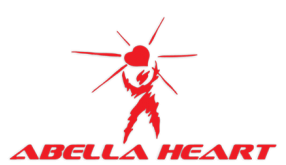For those who have varicose veins or other venous issues, it’s common to worry about the heart as well. All issues of veins and arteries connect back to the heart in some ways, so it’s natural to wonder how problems in other areas of the body relate back to the heart when they take place.
At Abella Health, we can help with basic education areas like this as part of our treatment for varicose veins. Let’s go over the areas where the heart and venous issues are connected, plus some areas where you actually don’t have as much to worry about as you might think.
Existing Heart Problems
The bigger concern areas first: Those who have existing heart problems, particularly one called congestive heart failure, are at much higher risk for venous issues. And when these issues do arise, they’re generally much more serious for people who already have heart issues.
A heart that isn’t contracting properly can lead to major pressure on the veins in legs to push blood back up to the heart. This can lead to fluid pushing across vein walls into tissue, leading to massive swelling and potential complications.
Venous Insufficiency and Valve Damage
Venous insufficiency refers to gravitational pressure increasing to levels where the veins cannot properly push blood back up to the heart. Luckily, though, as long as you have no pre-existing heart conditions, the simple presence of venous insufficiency is not a risk to your heart – the heart is above the legs gravity-wise, meaning no pressure is placed on any heart valves.
Blood Pooling Damage
In addition, venous insufficiency can cause blood to pool in the legs due to the increased pressure on their veins. This can lead to major discomfort and bulging or swelling, but like above, know that these symptoms are not active risks to the heart itself unless they’re caused by a pre-existing condition.
For more on how venous conditions affect the heart and vice versa, or to learn about any of our vein clinic offerings, speak to the staff at Abella Health today.

